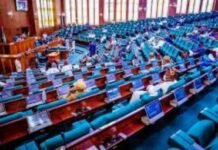The Federal Government said it would undertake a comprehensive review of the country’s fiscal and monetary policies in the next phase of its macroeconomic reforms.
The new phase of reforms is to consolidate the globally acclaimed success of its initial reforms and quicken current economic growth.
Addressing the Federal Executive Council (FEC) yesterday in Abuja, Minister of Finance and Coordinating Minister of the Economy, Mr. Wale Edun, who was directed by President Bola Tinubu to brief the Council, said the next phase of the President Tinubu’s economic reforms would focus on removing barriers to investment, optimizing national assets, and stimulating productivity across key sectors.
Against the background of 4.23 per cent growth in second quarter 2025, sustained decline in inflation, stable naira and rising foreign reserves, Edun said the next phase of reforms would accelerate economic growth to seven per cent per annum by 2027.
According to him, the forthcoming reforms will include tariff and import policy reviews, improved fiscal reporting, tighter expenditure controls, and a detailed reassessment of both federal and federation balance sheets to ensure inclusive and sustainable growth.
He said: “The next phase of reforms will remove barriers holding back investors. We will review tariffs and import restrictions to stimulate productivity and investment. A detailed review of the federation and federal balance sheets is underway to optimize asset management for inclusive growth”.
He added that ministers overseeing infrastructure, mining, education, health, agriculture, blue economy, digital innovation, and culture must work with state governments to package investment-ready projects capable of crowding in large-scale domestic and foreign capital.
He pointed out that the vision of reaching $1 trillion economy by 2030 was achievable by pursuing a seven per cent annual growth and a commitment to ending poverty as a moral imperative.
Providing an update on key economic indicators, Edun reported that Nigeria’s Gross Domestic Product (GDP) grew by 4.23 per cent in second quarter 2025, the highest in a decade outside the COVID rebound, with 13 sectors recording growth above 7.0 per cent.
He pointed out that the industrial sector nearly doubled its growth from 3.72 per cent to 7.45 per cent, reflecting strong investor confidence.
![]()










